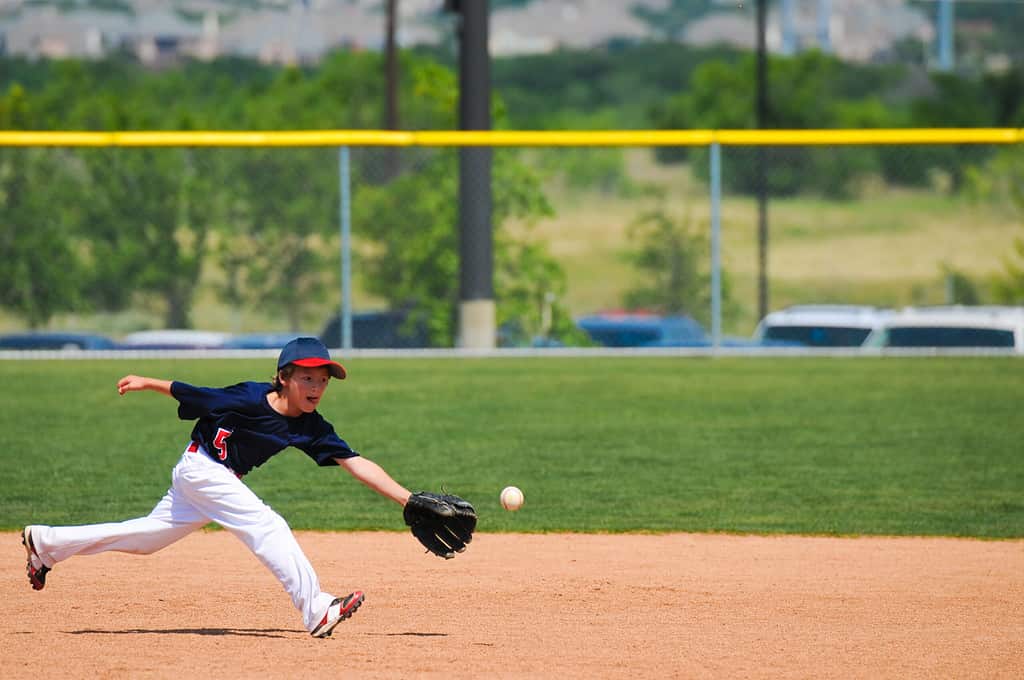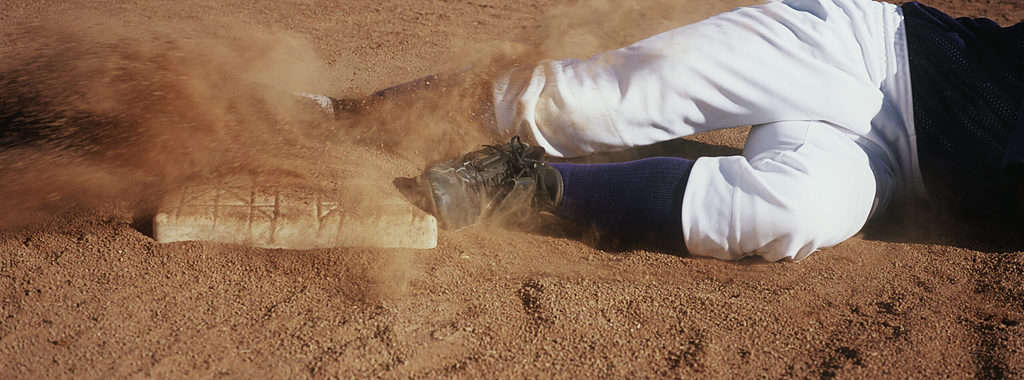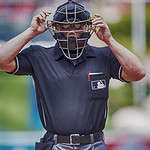In baseball, the mercy rule is a regulation that allows a game to end early if one team has a significant lead over the other. The rule is designed to prevent the losing team from suffering further humiliation and to save time in situations where the outcome of the game is already clear. The mercy rule is applied differently depending on the level of play, but it generally involves ending the game after a certain number of innings or when a specific point differential is reached.
The mercy rule has been a controversial topic in baseball, with some arguing that it takes away from the competitive nature of the game and others believing that it is necessary to prevent unnecessary injuries and preserve the dignity of the losing team. Supporters of the rule argue that it allows for the game to end quickly and efficiently without dragging out a blowout and wasting time. Opponents argue that it takes away from the excitement of the game and can be demoralizing for the losing team. Regardless of one’s stance on the rule, it remains an important aspect of baseball and is a topic of ongoing debate among players, coaches, and fans alike.

Understanding the Mercy Rule
The mercy rule in baseball is a rule that is put in place to end a game early if one team is winning by a large margin. This rule is also known as the “run rule” and is used in both amateur and professional baseball games.
How the Mercy Rule Works
The mercy rule is typically enacted when one team is leading by at least 10 runs after a certain number of innings have been played. The exact number of innings can vary depending on the league or tournament rules, but it is usually around 5 or 6 innings.
Once the mercy rule is enacted, the game is considered over and the team with the lead is declared the winner. This is done to prevent the losing team from having to endure a lopsided and demoralizing defeat.
Advantages of the Mercy Rule
The mercy rule has several advantages for both teams involved in a game. For the winning team, it allows them to conserve their energy and resources for future games. It also prevents them from running up the score unnecessarily and potentially injuring players on the opposing team.
For the losing team, the mercy rule allows them to avoid a humiliating defeat and move on to their next game with their morale intact. It also gives them a chance to rest and recover from the game, rather than having to play out a full 9 innings and risk further injury or fatigue.

Conclusion
Overall, the mercy rule is a valuable tool in baseball that helps to ensure fairness and sportsmanship in the game. By ending games early when one team has a significant lead, it allows both teams to focus on their goals and move forward with their season in a positive way.
Mercy Rule in Different Leagues
Major League Baseball (MLB)
In the MLB, the mercy rule is not implemented. The game continues until the end, regardless of the score. However, specific unwritten rules discourage teams from running up the score, such as not stealing bases or swinging for the fences when the game is already out of reach.
College Baseball
College baseball has a mercy rule that is applied after seven innings or if one team is leading by 10 or more runs after five innings. The game is then called, and the team with the lead is declared the winner. This rule is in place to prevent excessive fatigue and injuries for the losing team.
Little League Baseball
In Little League Baseball, the mercy rule is in effect if a team is leading by 10 or more runs after four innings. The game is then called, and the team with the lead is declared the winner. This rule is in place to prevent young players from getting discouraged and to ensure that games remain competitive.
High School Baseball
High school baseball has a mercy rule that is applied if a team is leading by 10 or more runs after five innings. The game is then called, and the team with the lead is declared the winner. This rule is in place to prevent excessive fatigue and injuries for the losing team.
NCAA Baseball
NCAA baseball has a mercy rule that is applied after seven innings or if one team is leading by 10 or more runs after five innings. The game is then called, and the team with the lead is declared the winner. This rule is in place to prevent excessive fatigue and injuries for the losing team.
Minor League Baseball (MiLB)
Minor League Baseball has a mercy rule that is applied if a team is leading by 10 or more runs after seven innings. The game is then called, and the team with the lead is declared the winner. This rule is in place to prevent excessive fatigue and injuries for the losing team.
Overall, the mercy rule is an important aspect of baseball that ensures fairness and safety for all players involved. While different leagues have different rules, the goal is always to prevent excessive fatigue and injuries for the losing team.
Implications of the Mercy Rule
For Pitchers
The mercy rule in baseball has several implications for pitchers. When a team is losing by a significant margin, the mercy rule allows the game to end early, which means that pitchers can avoid throwing too many pitches. This can help prevent injuries and fatigue, which can be especially important for young pitchers who are still developing.
For Coaches
Coaches also need to consider the implications of the mercy rule. If their team is winning by a large margin, they may need to make strategic decisions about whether to keep their best players on the field or give their bench players more playing time. Coaches also need to be aware of the pitch count of their pitchers and make sure they are not overworked.
For Teams
The mercy rule can have a significant impact on teams. If a team is losing by a large margin, they may feel demoralized and lose confidence. On the other hand, if a team is winning by a large margin, they may become complacent and lose focus. Teams need to stay focused and maintain their intensity, regardless of the score.
For the Game
The mercy rule is designed to make sure that games do not become too one-sided, which can be boring for fans and unfair for the losing team. The mercy rule is an important part of the game, as it helps to ensure that games are competitive and exciting. However, the mercy rule should not be used too often, as it can take away from the drama and excitement of close games.
Overall, the mercy rule has many implications for pitchers, coaches, teams, and the game of baseball. It is important for everyone involved to understand the implications of the mercy rule and use it appropriately.
Variations of the Mercy Rule
10-Run Rule
The 10-run rule is the most common mercy rule in baseball. It is enforced in many youth leagues, high school games, and college games. If a team is leading by 10 or more runs after the opposing team has completed at least seven innings, the game is over. The 10-run rule is also applied after five innings in some leagues.
15-Run Rule
The 15-run rule is similar to the 10-run rule but is enforced in some leagues where the level of competition is higher. If a team is leading by 15 or more runs after the opposing team has completed at least five innings, the game is over.
Run-Ahead Rule
The run-ahead rule is used in some youth leagues to ensure that games don’t get too lopsided. If a team is leading by a certain number of runs after a certain number of innings, the game is over. The exact number of runs and innings varies depending on the league.
8-Run Rule
The 8-run rule is used in some slow-pitch softball leagues. If a team is leading by 8 or more runs after five innings, the game is over. This rule is used to ensure that games don’t take too long and that teams don’t run up the score.
In conclusion, mercy rules are used in baseball and softball to ensure that games don’t get too lopsided and to protect the losing team from further embarrassment. The exact rules vary depending on the league and level of competition.

Mercy Rule in Other Sports
The mercy rule is not exclusive to baseball. Other sports also have similar rules in place to end games early when one team is significantly ahead. Here are some examples:
Softball
Softball also has a mercy rule, which is usually triggered when one team is ahead by a certain number of runs after a certain number of innings. The exact rules vary depending on the league and level of play, but the intent is the same: to avoid unnecessarily prolonging a game that has already been decided.
Other Sports
Some other sports also have mercy rules or similar mechanisms for ending games early. For example, in soccer, a referee can end a game early if one team is ahead by a large margin and the losing team is not going to mount a comeback. In football, a running clock may be used in the second half of a game if one team is ahead by a certain number of points.
Youth Basketball Leagues
In youth basketball leagues, a mercy rule may be used to end games early if one team is ahead by a certain number of points. This is often done to prevent blowouts and to give less skilled players a chance to get some playing time.
Timed Sports
In some timed sports, such as swimming or track and field, there is no mercy rule per se, but the format of the competition means that athletes who are significantly behind may not get to finish their events. For example, in a swimming race, if one swimmer is far ahead of the others, they may finish the race and get out of the pool before the other swimmers have even reached the halfway point.
Overall, the use of mercy rules or similar mechanisms in sports is intended to ensure that games are competitive and enjoyable for all participants.
Controversies and Criticisms of the Mercy Rule
The Mercy Rule has been a topic of debate in baseball for many years. While some argue that it is necessary to prevent demoralizing blowouts, others criticize it for being disrespectful to the winning team and potentially humiliating to the losing team.
One of the main criticisms of the Mercy Rule is that it takes away from the competitive nature of the game. Some argue that baseball is meant to be played until the end, no matter the score. Others argue that a lopsided score can demoralize both teams and that the Mercy Rule can help prevent this.
Another criticism of the Mercy Rule is that it can be seen as disrespectful to the winning team. Some argue that the winning team should have the opportunity to continue playing and improving their skills rather than being cut short by the Mercy Rule.
On the other hand, some argue that a blowout can be embarrassing and humiliating for the losing team. The Mercy Rule can help to prevent this by ending the game early and sparing the losing team from further embarrassment.
Overall, the Mercy Rule is a controversial topic in baseball, with valid arguments on both sides. While it can prevent demoralizing blowouts, it can also be seen as disrespectful to the winning team and potentially humiliating to the losing team.
Mercy Rule and Sportsmanship
In baseball, the mercy rule is a rule that comes into effect when one team has a substantial lead over the other. The rule is designed to end the game early to prevent the team that is losing from suffering a humiliating defeat. The mercy rule is an important part of sportsmanship in baseball, as it helps to ensure that games are played fairly and respectfully.
The mercy rule is typically used in youth baseball leagues, where the emphasis is on learning and development rather than winning at all costs. However, some high school and college leagues also use the mercy rule to prevent games from getting out of hand. In most cases, the mercy rule is triggered when one team has a lead of 10 or more runs after a certain number of innings have been played.
While the mercy rule may seem like it goes against the competitive nature of sports, it is an important part of ensuring that games are played fairly and respectfully. When one team has a significant lead, it can be tempting for them to continue to run up the score and humiliate their opponents. The mercy rule prevents this from happening and helps to ensure that games are played with dignity and respect.
In championship games, the mercy rule is typically not used, as the level of competition is higher and the stakes are greater. However, even in these high-pressure situations, sportsmanship and fair play should always be a top priority. By using the mercy rule in youth and lower-level leagues, players can learn the importance of sportsmanship and respect for their opponents, which will serve them well throughout their athletic careers.
Impact of Mercy Rule on Game Duration
The implementation of a mercy rule in baseball has a significant impact on the duration of games. This rule is designed to shorten games that have become lopsided, where one team has a significant lead over the other.
Under the mercy rule, if a team is leading by a certain number of runs after a certain number of innings, the game is called, and the team with the lead is declared the winner. This means that games that would have otherwise gone the full nine innings can be shortened to seven innings or even five innings, depending on the league and level of play.
The mercy rule is particularly useful in doubleheaders, where two games are played on the same day. Without a mercy rule, a blowout in the first game could lead to a long and tiring second game, which would be detrimental to both teams. By shortening the first game with a mercy rule, the second game can be played with fresh and rested players.
In addition to doubleheaders, the mercy rule can also help with the pace of play. When a game is out of reach, players may not be as motivated to continue playing at their usual speed, which can lead to longer innings and a slower pace of play. By calling the game early, the mercy rule can help keep the game moving and prevent unnecessary delays.
It’s important to note that the specifics of the mercy rule can vary depending on the league and level of play. In some leagues, the mercy rule may only apply after a certain number of innings, while in others, it may be a running clock that is used to determine when the game is called. Regardless of the specifics, the mercy rule has proven to be an effective way to shorten games and keep players fresh and motivated.
Mercy Rule in International Context
The Mercy Rule is a rule that is implemented in baseball games to prevent a team from being subjected to an excessive beating. The rule is designed to end a game early when one team has an insurmountable lead over the other. In international baseball, the Mercy Rule is used in many competitions, including the World Baseball Classic.
The World Baseball Classic is a tournament that features teams from around the world, including the United States and Canada. The tournament is played every four years and is considered one of the most prestigious international baseball competitions.
In the World Baseball Classic, the Mercy Rule is used to ensure that games do not become too lopsided. If a team is leading by 10 or more runs after the seventh inning, the game is called and the team with the lead is declared the winner. This rule ensures that games do not become too one-sided and that teams do not have to suffer through a humiliating defeat.
The use of the Mercy Rule in international baseball has been controversial. Some argue that the rule takes away from the competitive nature of the game and that teams should be allowed to play until the end, regardless of the score. Others argue that the rule is necessary to prevent injuries and to ensure that games do not become too one-sided.
Overall, the Mercy Rule is an important part of international baseball and is used to ensure that games are competitive and fair. While it may be controversial, it is a rule that is designed to protect the integrity of the game and to ensure that players are not subjected to unnecessary humiliation.
Mercy Rule During the Covid-19 Pandemic
The Covid-19 pandemic has significantly impacted the sports industry, including baseball. With the health and safety of players and staff being a top priority, the implementation of the mercy rule has become more common in baseball games during the pandemic.
The mercy rule is a regulation that allows a game to end early if one team has a substantial lead over the other team. The rule varies depending on the league, but typically, if a team leads by a certain number of runs after a specified number of innings, the game will be called and declared over.
During the pandemic, the mercy rule has been used to reduce the amount of time players spend on the field and limit the risk of exposure to the virus. By ending games early, players can avoid unnecessary contact and return to their respective bubbles or homes sooner.
In addition to reducing exposure, the mercy rule has also allowed teams to conserve their resources. With a condensed schedule and the potential for multiple games in a single day, ending games early can help teams preserve their energy and avoid injuries.
Overall, the mercy rule has been a useful tool during the Covid-19 pandemic to ensure the safety of players and staff while maintaining the integrity of the game.
Famous Instances of Mercy Rule Application
The mercy rule is a well-known rule in baseball that is applied when a team is winning by a large margin, and the game is considered to be out of reach for the losing team. In such cases, the game is ended early to prevent further humiliation of the losing team. Here are some famous instances of the mercy rule application in baseball history:
- In 2007, the New York Yankees were leading the Baltimore Orioles 30-3 in the 8th inning, and the game was called due to the mercy rule. This was the most lopsided game in the modern era of baseball and was a clear example of the mercy rule in action.
- In 2019, the Little League World Series saw a mercy rule application when the team from South Korea defeated the team from Mexico 10-0 in just five innings. The mercy rule was applied to end the game early and prevent further humiliation of the Mexican team.
- Another famous instance of the mercy rule application was in the 2018 NCAA baseball tournament when the Auburn Tigers defeated the Northeastern Huskies 13-4 in just seven innings. The game ended early due to the mercy rule.
- In 2008, the New York Yankees defeated the Texas Rangers 18-7, and the game was called after seven innings due to the mercy rule. This game was notable because it was Aaron Boone’s first game as a broadcaster, and he had to explain the mercy rule to viewers.
Overall, the mercy rule is an important rule in baseball that is applied to prevent further humiliation of the losing team. It has been used in many famous instances, including the ones mentioned above involving the Yankees and Aaron Boone.
Frequently Asked Questions
What is the run rule in high school baseball?
The run rule in high school baseball is a mercy rule that is invoked when one team is ahead by a certain number of runs after a certain number of innings have been played. The exact number of runs and innings varies by state, but it is usually around 10 runs after five innings.
How does the mercy rule work in college baseball?
In college baseball, the mercy rule is also known as the “10-run rule.” It is invoked when one team is ahead by 10 or more runs after seven innings, or by 15 or more runs after five innings. The game is then called and the team with the lead is declared the winner.
Is there a mercy rule in baseball at the professional level?
There is no official mercy rule in Major League Baseball or other professional baseball leagues. However, some minor leagues may have their own mercy rules that are similar to the ones used in high school and college baseball.
What are the criteria for a mercy rule to be invoked in softball?
The criteria for a mercy rule in softball are similar to those in baseball. The game is called if one team is ahead by a certain number of runs after a certain number of innings. The exact number of runs and innings varies by league and level of play.
How does the mercy rule differ between baseball and basketball?
In baseball, the mercy rule is invoked when one team is ahead by a certain number of runs after a certain number of innings. In basketball, the mercy rule is invoked when one team is ahead by a certain number of points after a certain amount of time has elapsed.
What is the maximum score difference for a mercy rule to be applied in the World Baseball Classic?
In the World Baseball Classic, the mercy rule is invoked when one team is ahead by 10 or more runs after seven innings, or by 15 or more runs after five innings.
- UCLA Softball: Let’s Go Bruins! - February 12, 2024
- Youth Softball Helmet Buying Guide: Keep ‘Em Safe - February 12, 2024
- Youth Softball Pants: Our Top Picks for Your Top Player - February 12, 2024








